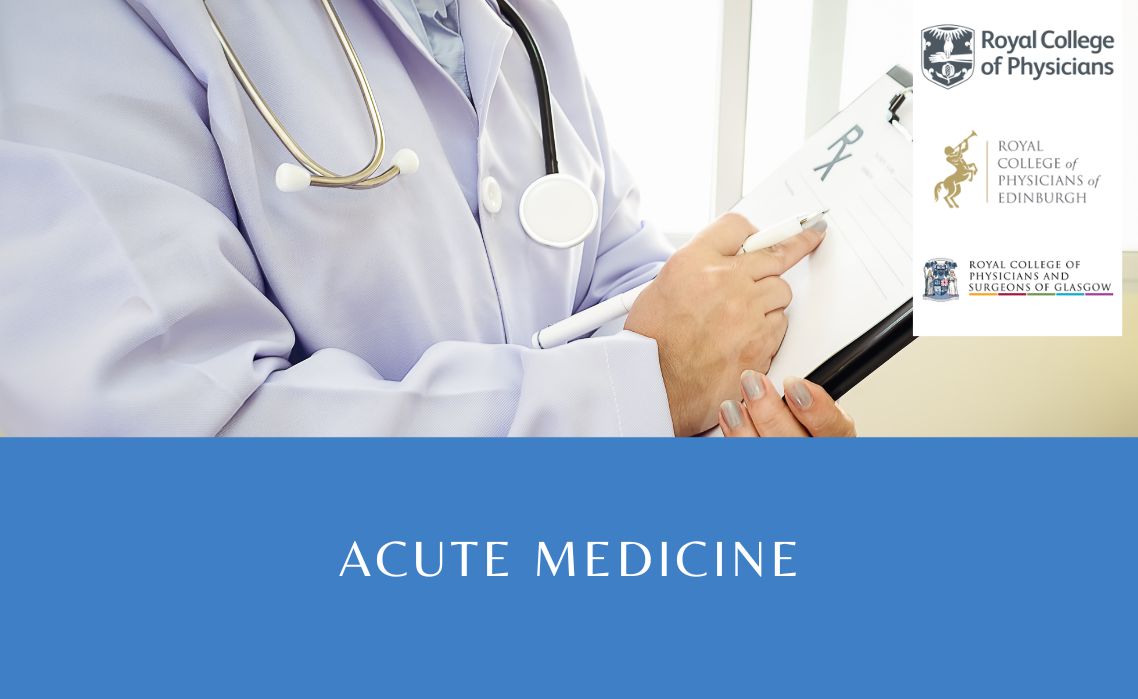
About Course
Acute Medicine
Acute Medicine (ACUMEN), which covers all aspects of acute medical care, allows you to practise your skills in diagnosing and managing a whole host of conditions. It is aimed at clinical trainees specialising in acute medicine. The themes are relevant to trainees across the world.
Interactive training on emergency medicine
The knowledge sessions, which have been written by practising clinicians from the UK, include many interactive features, such as videos and self-assessment exercises, to reinforce learning.
Relevant to clinical trainees globally
Using scenario-based exercises, you can practise your skills in managing various emergency medical situations in the safety of a virtual ward, with ‘patients’ experiencing symptoms from cardio-respiratory arrest through to breathlessness and chest pain. You can learn how to:
- review a medical history
- perform a virtual examination
- create a management plan
- review the patient outcomes
You can compare your performance with that of an expert clinician, helping you to identify any knowledge gaps.
Convenient, easy online access
ACUMEN is available online so you can study in the workplace, at home or even on the move. This acute medicine training course has been developed by the Royal College of Physicians, the Royal College of Physicians and Surgeons of Glasgow, and the Royal College of Physicians of Edinburgh in collaboration with NHS England elearning for healthcare.
This online acute medicine programme consists of four modules, each containing a number of sessions. Learning sessions take around 20 to 30 minutes each to complete.
The emergency presentation module covers subjects such cardiorespiratory arrest, unconscious patients, shocked patients and anaphylaxis
Main presentations including acute kidney injury, breathlessness, chest Pain, fits & seizures, haematemesis and melaena, poisoning and vomiting & nausea (to name a few).
Other topics covered include haemoptysis, hypothermia, immobility, medical complications following surgery and in pregnancy, head injury, polydipsia and lymphadenopathy.
